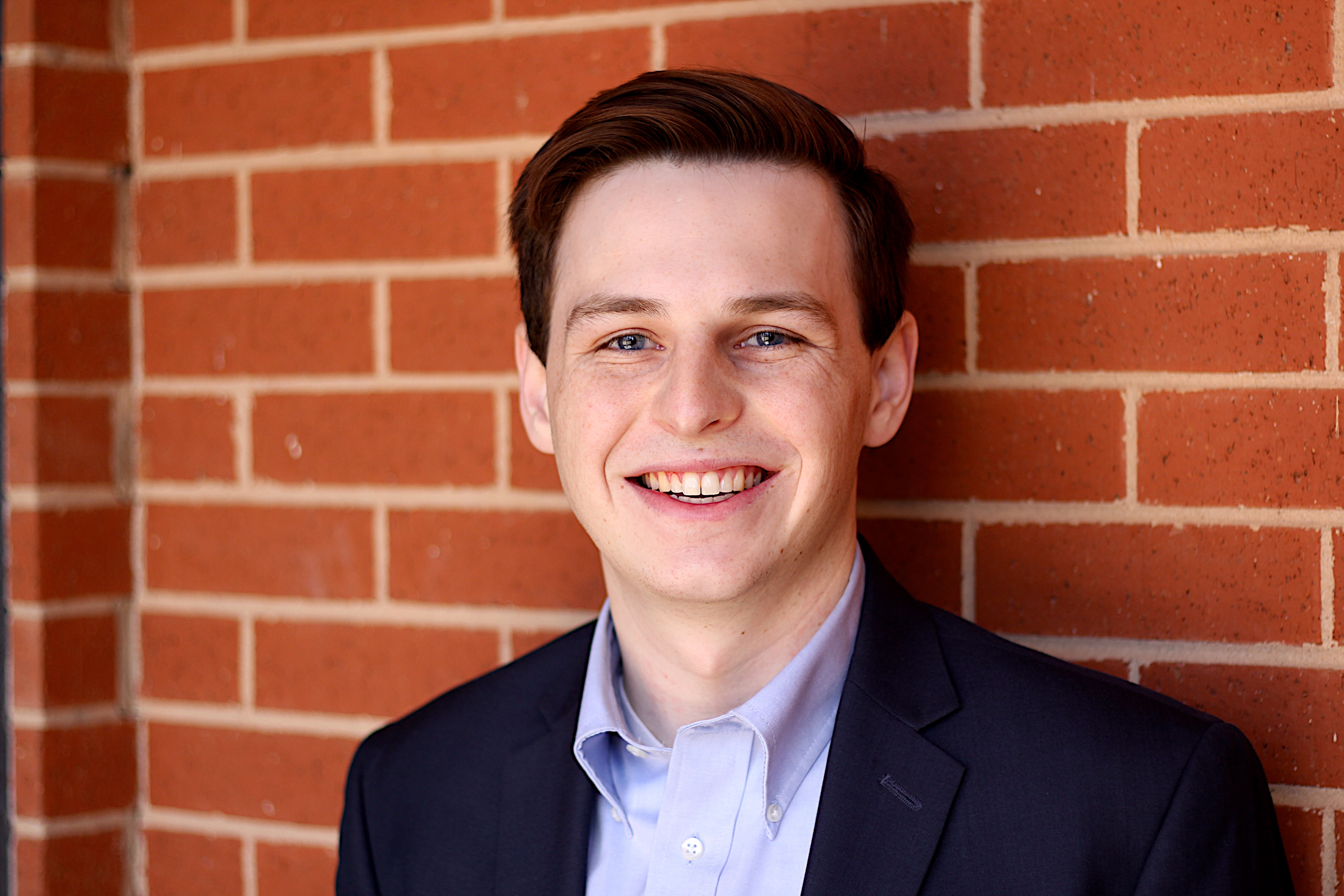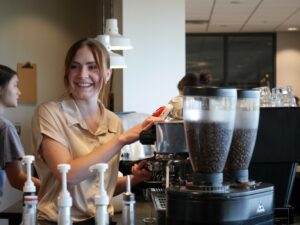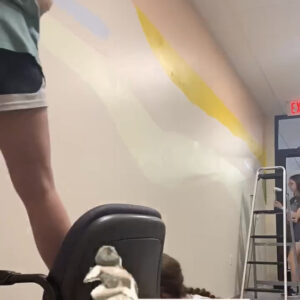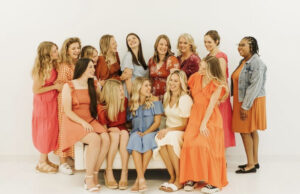This week, the Talon staff sat down with Turner Smith, a junior pre-law student who helped start Oklahoma Christian University’s chapter of the American Mock Trial Association. Smith discussed the benefits of mock trial and how it prepares students for careers in law and other industries.
What is mock trial, and how did it get started at Oklahoma Christian?
“Mock trial is an intercollegiate program. It’s a legal competition. There’s an organization called the American Mock Trial Association, and they oversee this. There’s hundreds of universities that do it, and they send out a case file each year. You get that case file, and you run through the materials: 250 pages of affidavits, depositions and evidences, all things that you would find in an actual legal packet. We take the packet, we run through it, we develop case themes for each side of the case. Then we go to different universities, different courthouses and compete against other schools.
Essentially, what happens is we have two to three judges. They are, at the very least, in law school or acting attorneys. Sometimes they’re actual judges. They have a ballot, they fill out that ballot and the highest score wins. You place by winning ballots.
How we got it at OC was I had a lot of friends in high school who also wanted to go to law school. I knew I wanted to go to law school pretty early. A lot of my friends in high school, when I first got to college, were in the same boat, and one of the things they had at these bigger universities were mock trial teams. They were talking about what an experience it was to actually practice your career before you have to go spend $200,000 to go to law school.
I saw the training they were getting, and that seemed like something OC could benefit from. We get a lot of advantages being at a small school, but we also miss some things. I thought this was kind of a big school opportunity that we could have here and keep our small school benefits. I pitched the idea to Dr. Maple, who is the department chair for the pre-law majors. He liked it. I went to Brian Simmons, and Simmons worked with me a lot to get the right people hearing about the ideas. We got some people signed up, and it went from there. Stephen Eck, the chief legal counsel for OC, stepped in and handled a lot of the administrative side of it, the coaching and the funding. It snowballed from there.”
What challenges did you face getting a Mock Trial chapter established at OC?
“The biggest one was interest. It’s something that a lot of people haven’t heard of before. A lot of people hear the name and think, ‘Why would I do that if I’m not going to law school? What could I possibly have to gain from a program like this if I don’t know for sure I’m going to law school?’
[Another challenge is] trying to show people how it can benefit them, being part of this program. And money, always. You’ve got to get funding, so that’s always a challenge. But we’ve been really lucky as far as that goes.”What is your process leading up to a mock trial?
“It’s a very long process. Because each tournament works with the same case, what we’re doing is constantly building on things we’ve already done. The first thing we did early on this year was we got our case file, and we developed case theories for each side of the case. It was a civil case, so plaintiff and defense. We went through, and we made a case theory for the plaintiff and a case theory for the defense. What I mean by case theory is you’re telling the court what you want them to do, and why you want them to do it. It’s really simple.
That’s the first thing we do is all of that case theory. Then we develop a theme. It’s a story. It’s not just a set of facts. Especially in this scenario, where they’ve specifically designed it to be as even as possible, it’s not about the truth, it’s about who presents the best version of the truth. A huge part of that is storytelling. Can you tell a story that people want to believe, and that they naturally believe? That’s where we get a theme.
Our theme for one of the sides of the case this year is about an animal trainer who came on a talk show, and his chimpanzee killed a writer. When we were defending that animal trainer, our case theme was ratings over safety. The television company cared more about ratings than they did safety.
We do a lot of preparation work with our witnesses, understanding what we want to get out under direct examinations and cross-examinations, and developing a way to get there. It’s a lot of road-mapping what we want to do and practicing doing it. But the case theory and case theme are the two major structural things we do.”
What are the long-term effects you hope Mock Trial will have for the university?
“There’s two. The first is definitely giving students a chance to experiment with the legal profession before they have to make a life-changing investment. Nobody wants to go to law school and pay $60,000 for that first year and then get there and think, ‘I hate this so much. I don’t want to do this.’ If we can get three people that do that and say, ‘OK, I’ve learned something,’ you’ve saved that person a lot of money. I think that’s really worthwhile.
The other thing is it gives us a chance to offer something to people who know they want to go to law school that we didn’t really have before. We had, I think, three legal courses at OC, and they’re general: comm law, media law and business law. We don’t really have a real training regimen for people who know that’s what they want to do. This seemed like an awesome way to do that. What better way than to scrimmage your career and what it’s going to be like to do your career?”
How well do you think mock trial competitions depict an actual trial?
“I think it does it to the best that it can at an undergrad level. The reason I say that is because a huge component of mock trial is acting. Obviously, your witnesses that you call did not actually witness an animal trainer’s chimpanzee kill a writer. A huge part of what they’re looking for is, is your witness believable, and does your witness hold up under pressure? To an extent that’s real, because you have to work with your witnesses to make sure they hold up when it comes to a cross-examination, but obviously, in a real trial, they’re not going to be grading you on how believable your witness is. It’s implicit; you need the jury to believe your witness, but they’re not going to sit there with a ballot.
The other thing is they change the rules of evidence slightly. They make it much stricter than it would be in a real courtroom, so that’s a little bit different. But other than those two things, it’s pretty true to form.”
What skills have you learned from being involved in mock trial?
“There are a ton of general things I’ve learned about just being in a courtroom and trying a case. Everybody learns when they do mock trial, even if it’s just logistical stuff like how do you begin a trial or how do you call a witness or how do you enter evidence, stuff like that. I think, just on a general note, it forces you to learn to communicate better than you ever thought you could.
You go to these tournaments, and you get ballots back from every judge you perform in front of, and they’re going to give you feedback at the bottom of that page. They will not hold back. I can tell you that right now. They’re going to tell you everything you don’t do well and how you can do that better. To have people who are doing that for a living tell you that over and over again—it’s not fun at first, but you’re going to learn a lot, and you’re going to get a whole lot better at communicating. I think having that feedback is huge.”
What’s the most challenging part of the mock trial experience?
“The learning curve. We had no idea what we didn’t know until we were there and realized we didn’t know it. That first tournament was tough. We got to the point at the end of the year where we lost to the No. 4 team in the nation by four points on a 140-point scale. We got there in the end, but when we started, it’s so much small stuff. Just knowing the right wording for entering evidence and knowing the right wording for winning objection battles. All the small stuff, it takes a long time to learn. I think nailing that small stuff is one of the biggest challenges, because that’s what separates a decent team from a really good team.”
What led to your success at the last Mock Trial competition?
“I think part of it really was just experience. We felt more comfortable. The more you do it, the more comfortable you feel, and the more comfortable you feel, the better you perform. I think that was a huge part of it for us. We started to feel like we belonged. We started to know what judges were looking for. I think it was a combination of those two things.”
What got you interested in pursuing a career as a trial lawyer?
“I knew I liked to argue, that was the first thing. The first appeal for me was I really loved to compete at things. In a trial, that’s really all you’re doing. You’re competing. You’re fighting to win an argument. To go into work and do that every day, to be in a competition setting, was really appealing to me.
But then as I got older and realized what picking a career meant, part of it for me became about I believed I could do the most good in this field. I got older and realized the things I wanted to focus on in my life. I care a lot about criminal legislation and social justice and the way it adversely affects certain communities. That’s really been kind of the focus of a lot of what I do in my major. I realized pretty quickly that those two things tie together well, that I could do a lot of a good with a law degree in that area if I pursue a legal education.”
Why would you encourage students of any major to get involved in mock trial?
“Learning to communicate, I think, is important no matter what you’re going to do. This is kind of the pitch I give to everyone who is thinking about doing it: I don’t care what you’re going to do. If you want to separate yourself from other people in your field, be a better communicator. That’s going to be the difference-maker. There are a lot of people who can learn specialized knowledge, but the ability to communicate that specialized knowledge and show that to other people and help other people understand it and make the people around you better, that’s going to make you a much more valuable person in your field. That’s the general thing that I tell most people. It’s going to help you communicate better than you thought you ever could, and that’s going to be important no matter what you’re doing.”
















Be First to Comment